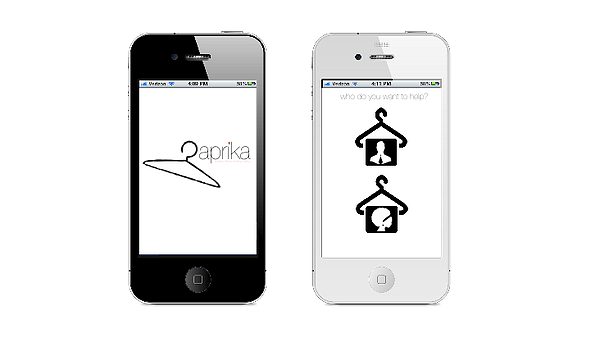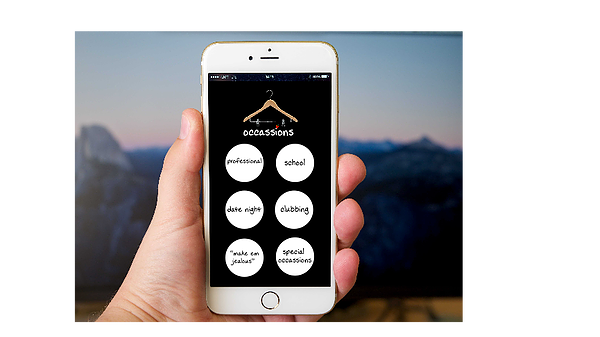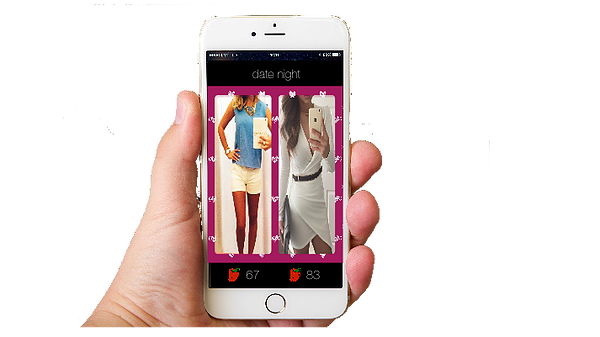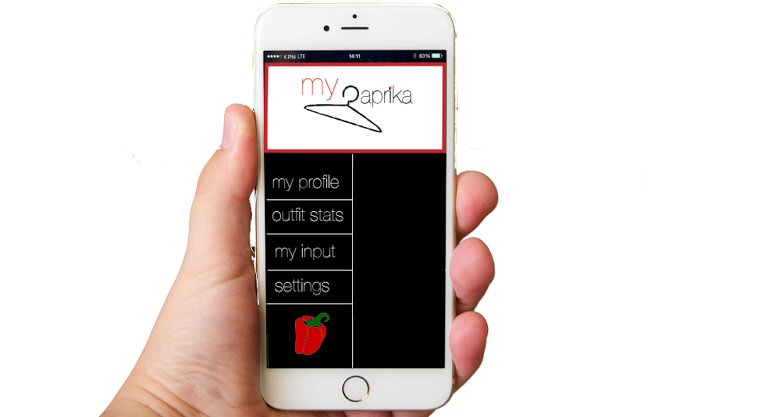Paprika: From Anonymity and Self-presentation to the True Self
Applications such as Instagram, Facebook, Snapchat, LinkedIn and Twitter are known by most smartphone users. When looking at someone else’s smartphone, you will most likely see at least one of those applications and it even gets suspicious when someone hasn’t heard of, for example, Snapchat. Those applications are, with a reason, in the top of the most downloaded applications in the USA and are immensely popular.
Self-presentation
In today’s society, the way we represent ourselves in the online world has become more and more important and therefore, according to cyberpsychologist Soraya Mehdizadeh, social media have even become more popular (357). The underlying reason of the popularity of inter alia Facebook, Snapchat and Instagram can be found in the fact that these social media are forms of environments which can be highly controlled with the aim of self-presentational behaviour (Mehdizadeh, 357). The concept of self-presentation can be described as “the image or idea of the self, or the process of creating this image for a variety of social purposes” (Counts and Stecher, 191).
Although social media are used for self-presentation, the way users are presenting themselves online varies by medium (Mehdizadeh, 357). Users post different content per medium: work-related information can be found on LinkedIn, while information about one’s activities in leisure time can often be found on Instagram and Snapchat. Studies have also shown that users do not only act differently on different social media platforms, but also in online social networks, made possible through social media, and online places that offer anonymity (Ellison et al., 4).
Anonymity and the True Self
Anonymity combined with internet is an often researched topic, because of the possibilities the internet offers us. Several scholars, such as Sherry Turkle, claimed that especially this possibility of anonymity on the internet would provide the ability to discover one’s true self, as described by the Canadian-American sociologist and writer Erving Goffman in his book The Presentation of Self in Everyday Life. The true self is a concept used to describe the parts of one’s person that are unexpressed or not recognised by others, but are nevertheless important when it comes to who you are. When talking to someone, you never show your true self which does, nevertheless, exist according to Goffman (1956). Professor Ben Highmore describes that “Goffman recognises that the self is that collection of performances that take place in and across specific locations” (50). Anonymity should, according to Turkle, give us the opportunity to bring all aspects of our selves together via internet in order to find the true self (Joinson et al.).
Bargh et al. support Turkle’s claim and explain that anonymity enables users to act different online than in the usual daily life social sphere, because there are less expectations from others and there is not a real risk of social sanctions (35). In order to find out whether this is true, we have developed the anonymous mock-up application Paprika that helps you choose your outfit. The research question connected to this is: “What impact does anonymity have on online self-presentation?”.
Paprika
Paprika is conceived to make it easier to choose your outfit, because, well, haven’t we all had trouble choosing our outfit for a night out at least once? Some of us may pick their outfits all by themselves, but others ask their friends for help. According to the survey we have done among MA students New Media and Digital Culture at the University of Amsterdam, 87.50 % of the respondents would use an application that provides feedback without having to identify themselves. Despite that, we have asked the same question at several students on the streets around the university and they gave us the same answers, as can be seen on the video at this page. An anonymous application which provides feedback on your clothes therefore might be a solution to all of your Saturday-night-outfit-drama’s.
Hence, Paprika makes you never leave your home without looking spicy. The name might sound unusual, but didn’t Tinder sound weird the first time you heard it? We have chosen a name which fits with the goal to be dressed spicy (or hot), and the name is at the same time something which can easily be remembered. The latter is important, because unremarkable names can easily be forgotten and that’s exactly what we want to preclude.
Features
Paprika is a easily manageable mock-up application which combines recognizable interfaces from other applications, such as Instagram and Snapchat. First of all, when you open the application on your smartphone, you will get the ability to choose whether to help a man or a woman. With this, we make the application attractive to both genders: men won’t get an overload of women’s outfits they are not looking for and the reverse. Once you have chosen the gender, you can make another choice, namely for the occasion. The user can make a choice out of six occasions and these include the following: professional, school, date night, clubbing, make them jealous and special occasions. Users who upload their outfits are highly encouraged to post their outfit in the correct section, because you will receive feedback on your outfit based on the chosen occasion. In case you post your outfits under a faulty tag, you might pick the wrong outfit for your occasion.

Image 1: The opening screen and the gender choice.
Image 2: The screen where an user can choose the dressing occasion he wants to give his feedback on.
When the user passed the occasions screen, the outfits will automatically appear on the user’s screen. As an example, we used an user’s two date night outfits, as can be seen on image 3. The users who are giving feedback, can click on the paprika logo to show which look they see as the spicy one. By doing so, they ‘Paprika’ the look. This interface can also be found in Instagram at the part where you double tap the photo when you like it and a heart appears to show the like to the one who posted the photo. Once you have made a decision on the spiciest look, the next two looks will appear. This is similar to Tinder’s interface where you swipe left or right to show that you are interested or not, and the next potential lover becomes visible on your screen. Also quite similar to Tinder is the impossibility to comment on someone’s photo. You only get the possibility to ‘Paprika’ one of the outfits, but you can’t send the user messages or (rude) comments. With this impossibility, we prevent the user from cyberbullying as, according to inter alia Hinduja and Patchin, anonymity on online platforms can provoke bullying as there are no social sanctions connected to bad behaviour (2014).

Image 3: The screen where an user can Paprika an outfit. It clearly shows how anonymity will be provided in photos through the disappearance of faces.
Despite that, Paprika makes use of one of Snapchat’s most famous features, namely the face recognition. To make sure someone posts a photo without a face, the user has to take the photo’s within Paprika. The application will recognize body and face shapes and only allows the user to post a photo of its body. When trying to include your face, the application will simply not allow you to take a photo. At the basic level, the applications uses a special computer vision which sees your body based on contrast patterns typically for your body. According to legal director of Wikimedia Foundation Yana Welinder this is typically used in programs that use facial recognition (93). Of course some users might want to trick the system by showing their naked self, but there is a build-in recognition for that as well. Just as on Instagram, it is not possible to post naked photos and they will automatically be deleted. Therefore, Paprika recognises genitals through the body recognition feature.
Last, as an user of Paprika you must register yourself. Although it is an anonymous application, this is necessary to upload photos, change your settings and watch the statistics about the outfits you have posted. In case you’re not logged in, you won’t be able to see what outfit was chosen as the best one for the occasion. The given information won’t be visible to other users and is only used for your own experience. To make sure others won’t be able to see your content connected to your profile, it is not possible to share things, such as profiles and information, within the application.

Image 4: The screen that shows your personal profile, where you can find inter alia outfit statistics and settings.
Anonymity on social media
The mock-up application is build all around the idea that anonymity can eventually lead to experiencing the true self since there are no social sanctions connected to the online self-presentation. However, our survey has shown that 60% of the respondents does feel comfortable presenting themselves online without anonymity. Nevertheless, a percentage of 40% does not feel comfortable and it even turns out that 52% of the respondents feel more comfortable presenting themselves in an anonymous setting. The survey, which can be found together with the project’s proces here, has as a result that users prefer anonymity online.
However, the question connected to Paprika is: “What impact does anonymity have on online self-presentation?”. Both our survey and interviews have shown that close to half of the respondents feel less insecure when they can present themselves anonymously. Also, according to the survey, applications which provide anonymity are popular among the students. In line with this, the theories are underlining the idea that anonymous online self-presentation can lead to the true self. The bad side of anonymity is the possibility that users go rude and post comments that are close to cyberbullying. Therefore, questions such as “can there be a true self on an anonymous platform?” arise.
Anonymity in Paprika
According to the theories and survey outcomes, anonymity on platforms is desirable, but nonetheless also duplex, since it can lead to both the true self and cyberbullying. Despite that, it is not easy to ensure an user’s anonymity within the online world. Several features, among other things the body recognition feature, should provide an user the desired anonymity, but this does not prevent the user from getting recognised by others because of, for example, their style. Another important effect of applications is the collection of metadata. Metadata can’t be seen at first, but may be readable to hackers and techies who can make use of the data. This can also be seen as an issue when it comes to other applications.
Preserving anonymity in order to make sure an user can show his true self is therefore, unfortunately, untenable. This is unfortunate, because both respondents and theories have shown that self-presentation online is easier when one is anonymous. Through Paprika, it has become clear that anonymity does not lead to the true self per se. Anonymity gives us the possibility to bring all aspects of our selves together via internet in order to find the true self, but it’s not clear how this happens. Earlier written theories are based on the idea that the internet, and everything connected to it, is the place where one can show every aspect of themselves. An important part of yourself is nevertheless your body, your face, which can’t be shown when you ensure anonymity. Cyberpsychologist John Suler mentions that “dissociative anonymity taps onto the compartmentalization of selves. The “online self” is but one compartment of many selves” (322). Dissociative anonymity is defined as the act of separating actions from the online self, because anonymity has been perceived by the user.
Recapitulatory, the above mentioned shows that anonymity does have impact on the online self-presentation of an user. The researches around Paprika have shown the desire to anonymous application experiences and most people feel more comfortable presenting themselves online anonymously, which makes it easier to show only the online self, as has been described by Suler. Anonymity, however, has as a result that never all selves of an user are shown. The true self can, therefore, neither be found online nor in our application Paprika.
Bibliography
Bargh, John, et al. “Can You See the Real Me? Activation and Expression of the “True Self” on the Internet.” Journal of Social Issues. 58(1), 2002. 33-48.
Counts, Scott, and Kristin Stecher. “Self-Presentation of Personality During Online Creation.” Proceedings of the Third International ICWSM Conference. Albuquerque: Microsoft, 2009.
Ellison, Nicole, et al. “Managing Impressions Online: Self-Presentation Processes in the Online Dating Environment.” Journal of Computer-Mediated Communication. 11(2), 2006. 415-441.
Highmore, Ben. The Everyday Life Reader. London: Routledge, 2002.
Hinduja, Sameer, and Justin Patchin. Bullying Beyond the Schoolyard: Preventing and Responding to Cyberbullying. New York: Corwin, 2014.
Joinson, Adam, et al. Oxford Handbook of Internet Psychology. New York: Oxford Press, 2009.
Mehdizadeh, Soraya. “Self-Presentation 2.0: Narcissism and Self-Esteem on Facebook.“ Cyberpsychology, Behavior, and Social Networking. 13(4), 2010: 357-364.
Suler, John. “The Online Disinhibition Effect.” CyberPsychology and Behavior. 7, (2004): 321-326.
Welinder, Yana. “Facing Real-time Identification in Mobile Apps & Wearable Computers.” Santa Clara Computer & High Technology Law Journal. 30(1), 2013: 91-137.